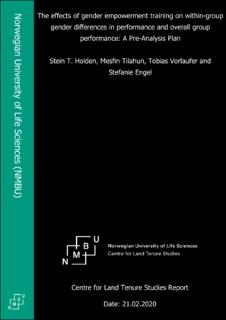Toolkit for Integrating Gender-Related Issues in Land Policy and Administration Projects
Women are often the primary users of land for residential and agricultural purposes, but are frequently denied primary and ownership rights to land and other natural resources because of cultural norms. Women are also often excluded from effective participation in the provision of land administration services. This toolkit provides a quick guide for task team leaders of land administration projects, titling components of larger operations, or other land titling initiatives to ensure greater participation by women in the land titling process.





